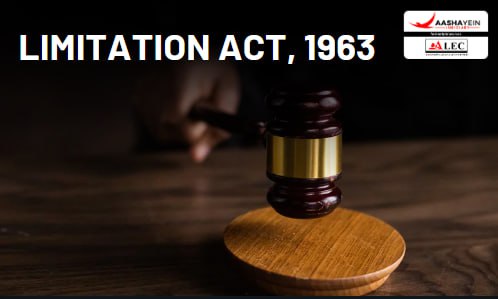Legal disability under the Limitation Act means a person is unable to take legal action because of physical or mental limitations. It refers to a situation where someone does not have the full legal capacity to exercise their rights like an ordinary person would.
Legal Disability Under Section 6 of the Limitation Act
Section 6 of the Limitation Act provides special provisions for individuals who are legally disabled, meaning they cannot file a suit or application within the prescribed limitation period. The following persons are considered legally disabled under this section:
- Minors: As per the Indian Majority Act, 1875, a person is legally recognized as an adult when they turn eighteen years old. According to Section 3(2) of this Act, the entire day of birth is counted while calculating age. This means that a person is considered to have reached adulthood as soon as the day of their 18th birthday begins.
- Persons of unsound mind: In the case of S.K. Yadav v. State of Maharashtra, the Supreme Court explained the difference between legal insanity and medical insanity. Legal insanity is a concept recognized by courts, whereas medical insanity is a diagnosis given by doctors. There is no fixed test to determine legal insanity. Even if a lower court accepts medical evidence of insanity, the higher courts will re-examine it before making a final decision. To establish legal insanity, the courts look at the accused's behavior, past history, and actions before, during, and after the incident.
- Idiots: An idiot is someone who struggles to remember the days of the week, has never had a clear memory, and is unable to count beyond the number twenty.
You can also read the latest judgment by visiting [Latest Judgment].
For more information, visit [Aashayein Enquiry Section]
Rules Regarding Legal Disability
Single Legal Disability – If a person suffers from one legal disability, they can file a suit or application after the disability is removed, within the same limitation period.
Multiple Legal Disabilities – If a person has more than one disability, they can file the suit only after all disabilities are removed, within the same period.
Disability Until Death – If a person remains disabled until their death, their legal representative can file the suit within the same limitation period after their death.
Legal Representative Also Disabled – If the legal representative is also disabled at the time of the original person’s death, the same rules as above (points 1 and 2) will apply.
Death After Disability Ceases – If a person dies after their disability is removed but within the limitation period, their legal representative can file the suit within the same period.
Additional Points
-
-
-
- Scope of "Minor" – The term "minor" under Section 6 includes a child in the womb.
- Initial Disability – Section 6 only applies when the disability existed at the time when the right to sue first arose.
- Lack of Next Friend – If a minor or disabled person does not have a proper guardian (next friend) or if the next friend is the wrongdoer, they can invoke Section 6 to seek relief under the Limitation Act.
-
-
- Akhtar Hussain v. Qudrat Ali (1923)
In this case, the court clarified that Section 6 of the Limitation Act does not apply to appeals. It is only applicable to the filing of original suits and applications.
Understanding Section 7 – Legal Disability of One Among Several Persons
Sometimes, a legal situation arises where multiple people have the right to file a lawsuit or enforce a court order, but one of them is under some kind of legal disability (like being a minor or mentally incapacitated). If the law allows the other entitled persons to proceed with the case or enforce the decree without needing the disabled person's consent, then the legal time limit (limitation period) will apply to all of them equally.
However, if the consent of the disabled person is necessary and they are unable to give it, then the limitation period will not start until either:
-
-
-
- One of the joint holders becomes capable of proceeding without the disabled person's approval, or
- The disability of the affected person is removed (for example, a minor reaches adulthood).
-
-
This section ensures that a person's legal rights are not unfairly restricted due to the incapacity of another. For instance, if two brothers inherit property and one of them is a minor, the time limit to file a case for their inheritance will not start until the minor turns 18 unless the adult brother can proceed alone.

